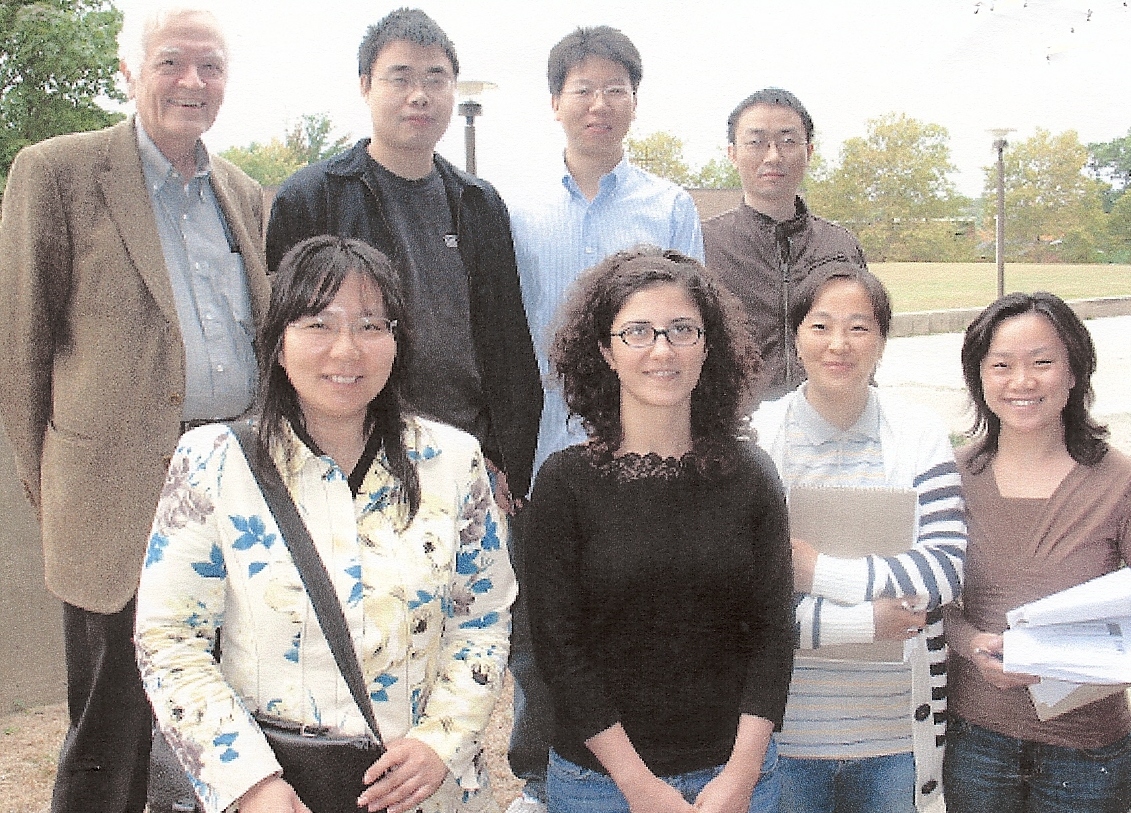COMPUTATIONAL APPLIED MATHEMATICS
Computational applied mathematics studies important scientific problems through a combination of science (experiments and underlying scientific theories), applied mathematics (techniques and theories) and computation (software and hardware). The dominant mathematical modeling technique used in this field is differential equations, and most problems studied arise in the natural sciences and engineering, such as climate modeling or aircraft wing design. However, computational applied mathematics has much wider applicability, as illustrated by its heavy use in modeling derivatives on Wall Street.
 The Stony Brook Department of Applied Mathematics and Statistics has one of the country's
leading groups in computational applied mathematics. Our research foci include the
development of numerical algorithms for modern supercomputer architectures and parallel
computing for a wide spectrum of problems ranging from quantum and atomistic models
to kinetic and continuum PDE models, with applications to computational physics and
chemistry. An exemplary area of research is interaction of nonlinear waves in computational
fluid dynamics, where these waves arise in a variety of settings, such as diffraction
of shock waves, enhanced oil recovery, pollution in groundwater, and the design of
particle accelerators. High-performance scientific computing is another major focus, with strong ties with
the Institute for Advanced Computational Sciences and Brookhaven National Laboratory. For more information about Computational Applied Mathematics research, see Computational
Applied Mathematics projects. For more information about Computational Applied Mathematics
research, see Computational Applied Mathematics projects.
The Stony Brook Department of Applied Mathematics and Statistics has one of the country's
leading groups in computational applied mathematics. Our research foci include the
development of numerical algorithms for modern supercomputer architectures and parallel
computing for a wide spectrum of problems ranging from quantum and atomistic models
to kinetic and continuum PDE models, with applications to computational physics and
chemistry. An exemplary area of research is interaction of nonlinear waves in computational
fluid dynamics, where these waves arise in a variety of settings, such as diffraction
of shock waves, enhanced oil recovery, pollution in groundwater, and the design of
particle accelerators. High-performance scientific computing is another major focus, with strong ties with
the Institute for Advanced Computational Sciences and Brookhaven National Laboratory. For more information about Computational Applied Mathematics research, see Computational
Applied Mathematics projects. For more information about Computational Applied Mathematics
research, see Computational Applied Mathematics projects.




There is demand for both M.S. and Ph.D. degrees in computational applied mathematics. The department offers a 30-credit M.S. degree, without a required thesis, that prepares students for non-academic careers. The department also offers a Ph.D. degree, which starts off with the same courses as the M.S. degree. For more details about requirements for the Ph.D., please see Ph.D. Requirements.
Required courses for M.S. in Computational Applied Mathematics track:
- AMS 501 Differential Equations and Boundary Value Problems (Fall)
- AMS 503 Applications of Complex Analysis (Fall)
- AMS 510 Analytical Methods for Applied Mathematics and Statistics (Fall)
- AMS 526 Numerical Analysis I (Numerical Linear Algebra; Fall)
- AMS 527Numerical Analysis II (Approximation Theory and Numerical ODEs; Spring)
- AMS 528 Numerical Analysis III (Numerical PDEs; Spring)
- AMS 595 Fundamentals of Computing (Fall), or AMS 561 Introduction to Computational Science (Spring)
- AMS 500 Responsible Conduct of Research and Scholarship (RCRS, 0 credits, required for M.S. students involved in funded research and all Ph.D. students)
plus three electives (nine credits total) from the following selection of courses:
- AMS 502Differential Equations and Boundary Value Problems II (Spring)
- AMS 530 Principles in Parallel Computing (Fall)
- AMS 542Analysis of Algorithms (Fall & Spring)
- AMS 562 Introduction to Scientific Programming in C++ (Fall)
- AMS 565Wave Propagation (Fall)
- AMS 566 Compressible Fluid Dynamics (Spring)
- AMS 603 Computational Methods for Quantitative Finance (Spring)
or other electives from AMS or other departments (such as ESE 533, MEC 539, MEC 651) with written approval from the CAM track advisor
A recommended course sequence is as follows:
First Semester (Fall)
- AMS 501 Differential Equations and Boundary Value Problems
- AMS 510 Analytical Methods for Applied Mathematics and Statistics (Fall)
- AMS 526Numerical Analysis I (Numerical Linear Algebra)
- AMS 595 Fundamentals of Computing (If not taking an ESL course)
Second Semester (Spring)
- AMS 502 Differential Equations and Boundary Value Problems II (or choose another elective for Masters students)
- AMS 527 Numerical Analysis II (Approximation Theory and Numerical ODEs)
- AMS 528 Numerical Analysis III (Numerical PDEs)
- AMS 561 Introduction to Computational Science (if skipped AMS 595 in the Fall)
- AMS 500 Responsible Conduct of Research and Scholarship (RCRS for M.S. students involved in funded research and all Ph.D. students
Third Semester (Fall)
- AMS 503 Applications of Complex Analysis
- Two electives (e.g. AMS 530, AMS 542, AMS 562, AMS 565, etc.)
Ph.D. students in general should follow the same recommended sequence as M.S. students. If you are a Ph.D. student with strong background in mathematics and have excelled in the assessment test for AMS 510, you may opt to audit AMS 510 instead of taking it for credit, and take AMS 503 in the first semester instead.
For M.S. students: If you plan to stay for a fourth semester, please plan ahead! For example, consider the Advanced Certificate in Quantitative Finance for 15 extra credits. If you would like to take the qualifying exams, note that registering for the Foundation Exam requires you to have taken AMS 510, 501 and 526 and to have received B+ or above in all of these classes; to register for the area-specific exam, you must have taken and received B+ or above in at least three of AMS 502, 503, 527 and 528.
